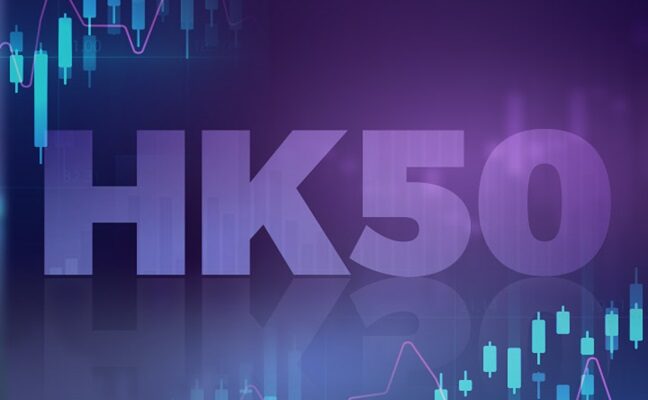The HK50, sometimes also known as the HS50, is Hong Kong’s secondary stock market index. Data tracks the country’s top 50 largest companies based on market cap that are listed on the leading Hong Kong stock market exchange. Unlike the UK100 or S&P 500, you can’t invest directly into the HK50 index. It’s a performance tracker, but you can buy into Hong Kong index funds or futures and invest directly into the listings.
It’s an excellent way to gain exposure to the Hang Seng Index (HSI), the benchmark index of the Chinese and Hong Kong financial markets. The fact that the two markets are so closely linked is why you’ll notice we reference China as much as we do Hong Kong throughout the article.
Whether it’s the HS50 or the HSI, they’re both excellent indices to follow, and recent signals suggest emerging opportunities, particularly for African traders. Read on to find out more.
Short-Term Trading Signals
The HS50 is more volatile than other indices, and China-centric news specifically has an impact on sharp swings within the index.
That’s especially true lately, with China being the worst hit by Donald Trump’s trade tariffs, which he decided to start again only weeks ago, putting China’s tariff rate back to 100%. Anything China-related, from trade figures and currency moves to global events, triggers sharp swings for the HS50. It doesn’t sound good for a long-term strategy, but a sudden breakout above a technical level or sell-offs based on news do create good day-trading opportunities for professional traders.
Most traders go into the HK50 through trading platforms such as Exness or brokers using a Contract for Difference (CDF) or futures. Most people will agree that HS50 CDFs have high liquidity and tight spreads, allowing traders to easily go long or short on the index without actually holding any stocks. The average leverage is often between 50 and 100x.
Asia–Africa Macroeconomic Correlations
The Asia-Africa macroeconomic correlations are where the market becomes relevant for African traders. China, linked to Hong Kong through the HSI, buys around 20% of Sub-Saharan Africa’s exports and supplies the country with most of its imported manufactured goods. As a result, the HS50 market moves closely with African trade flows.
Hong Kong is also a trading hub, with its 2025 integration with the London Metal Exchange and subsequent boosting of metals trading and RMB settlement commodities directly impacting African miners and, thus, traders.
Direct stock market correlations can vary, but the global risk flows between the regions. If the HS50 rallies against positive news from China, growing market capitalization sometimes boosts African equities and currencies.
Some studies show that volatility spillovers between Chinese and some African markets highlight how moves in the Hang Seng echo in African indices. We will say, however, that the effect is relatively indirect and overshadowed by local African factors.
Long-Term Macroeconomic Trends
The growth of trade between China and Africa and Asia’s general business cycle heavily influences African markets.
By the end of 2024, China’s exports to Africa reached $171 billion, increasing by 4% year-on-year. Imports also generated $117 billion, up 6.8% year-on-year. And, if you follow trading signals on platforms such as Exness, you’ll see a sustained HS50 positive sentiment and uptrend often linked to rising African commodity exports, such as oil and metals, as China sources much of its raw materials from Africa.
Hong Kong also has substantial ties with Africa. In 2025, it released a commodities strategy aimed at diversifying trade partnerships, with one route including Africa. After that announcement, Hong Kong’s market cap surged around 24% year-on-year to $5.2 trillion by May 2025. Long-term, that could suggest HS50 trends might align with infrastructure and trade investment in Africa.
With these close economic dependencies growing, the likelihood of HS50 weaknesses denting African commodity revenues and investment inflows increases.
The African Sectors Likely to Benefit
African commodity exporters will be the most directly affected. In 2024, the main African suppliers to China were hydrocarbon and mineral producers. If the HS50 rallies soon based on China’s industry demand, we’ll see sectors like oil, copper, cobalt, and uranium in Africa benefiting.
And, for HS50 energy majors such as CNOOC and Sinopec, performance signals in global oil and metal markets will align with African exporters. For traders, it’s an excellent opportunity to benefit from potential upward trends in the market.
Technology and telecoms are another excellent sector to focus on for African traders. Companies such as Huawei and ZTE have built hundreds of telecom networks and implemented endless data projects across Africa. If the tech sub-index rises on the HS50, signaling increased Chinese tech investment or market expansion in Africa, traders following the movements will benefit from smart investments.
Accessing the HK50 from Africa
African traders can easily access the HS50. As we mentioned, CFDs and futures are an excellent option. Using CFD platforms to mirror HS50 moves, African traders can gain 24-hour trading insights, high leverage, and either long or short trading strategies with small margins. Futures need more upfront capital, but they are still a great option.
Exchange-traded funds (ETFs) are also common for tracking Hong Kong indices. One example is the iShares Core Hang Seng Index ETF that tracks Hong Kong equities. African investors accessing international markets can easily buy ETFs through global brokers and trading platforms that list foreign ETFs. It’s a great way to get market exposure without derivatives.
African traders can also directly buy shares of Hong Kong or Chinese companies through US exchanges, which are typically more accessible than Hong Kong’s exchange. Yes, it’s not a direct access to the index, but it’s a strategy to become part of the HS50’s movements and investments.
The link between Hong Kong’s markets and African signals exciting opportunities for African traders. The HS50 index is showing signs that recent trade deals and a growing trade reliance by China and Hong Kong on Africa will positively impact the related HS50 listings. Now could be an excellent time for African traders to join the HS50 market.



